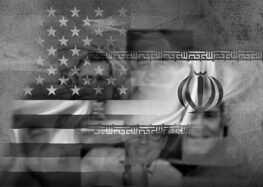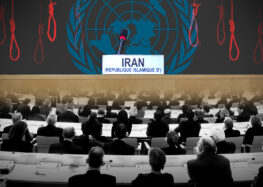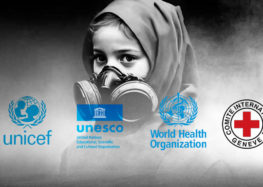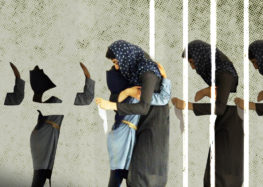Leading Academics and Policy Experts Call on Iran to Release Imprisoned Dual Nationals
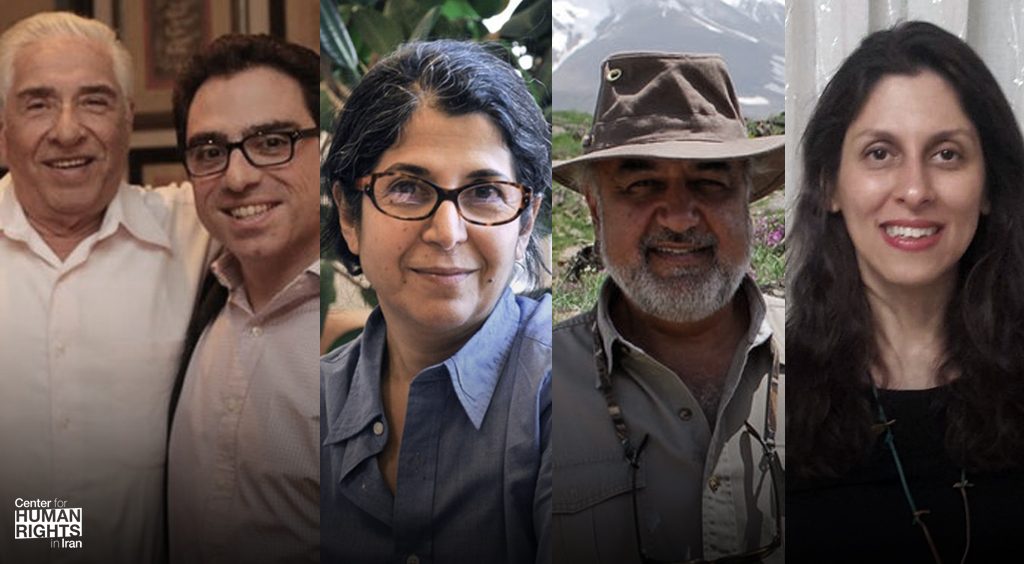 The use of prisoners as bargaining chips in order to coerce other governments to provide concessions is a cruel policy”
The use of prisoners as bargaining chips in order to coerce other governments to provide concessions is a cruel policy”
A group of prominent academics, policy experts, former government officials, parliamentarians and diplomats released a statement on September 15, 2020, calling on the Government of Iran to release its many imprisoned dual nationals.
The list of prisoners cited in the statement include son and father Siamak and Baquer Namazi, who have Iranian and British citizenship, Morad Tahbaz, who has Iranian, US and British citizenship, French-Iranian Fariba Adelkhah, and British-Iranian Nazanin Zaghari Ratcliffe.
Many of these prisoners have been held for years and face long prison sentences. Their arrests were followed by a pattern of prolonged solitary confinement and interrogations; lack of due process; denial of consular access or visits by the UN or humanitarian organizations; secretive trials in which the detainee is given limited access to counsel; and lengthy prison sentences based on vague and unsubstantiated “national security” or “espionage” charges.
In addition to these individuals, there are also other dual nationals currently imprisoned in Iran under manufactured national security related charges.
The Iranian government doesn’t recognize dual nationality and has denied consular access to the vast majority of these detainees—who were arrested by the Islamic Revolutionary Guard Corps’ (IRGC’s) Intelligence Organization or the Intelligence Ministry, often while they were visiting Iran.
There are grave concerns for the lives of some of the prisoners, especially Baquer Namazi, a senior citizen who has been hospitalized several times for heart procedures, and Nazanin Zaghari-Ratcliffe, who has been separated from her young daughter since 2016 (when her daughter was 22 months old) and has suffered from severe depression.
Following is the full statement and list of signatories:
Open Letter on the Continued Detention of Iranian Dual-Nationals
September 15, 2020
As the 75th Sessions of the United Nations General Assembly opens in tomorrow, we, the undersigned, are writing to raise serious concerns about the continuing, prolonged detention of Iranian-American citizen Siamak Namazi and other dual nationals in Iran who have been unjustly convicted on vaguely and arbitrarily defined national security charges, without due process and in unfair trials.
This fall marks the 5th year that Siamak, a business executive and humanitarian, has been behind bars. In 2016, a revolutionary court in a secret trial sentenced Siamak to 10 years in prison on the made-up charge of cooperating with the “hostile” US government. Siamak’s repeated requests for a fair trial, due process, and even temporary release on furlough – for which he is eligible under Iranian law – after five years of unjust imprisonment have landed on deaf ears.
Retired senior UNICEF official Iranian-American Baquer Namazi, Siamak’s 84 year old father – who was arrested in 2016 – has also been convicted on similar arbitrary charges. Due to his ill health, he has been granted a medical furlough. However, although gravely ill, Iran refuses to allow Baquer Namazi to leave the country to get the necessary medical attention. His health continues to deteriorate, and he will not likely survive much longer.
Sadly, Siamak and Baquer are only two among the several known cases of dual nationals, such as Morad Tahbaz, Iranian-American conservationist and businessman, and Fariba Adelkhah, French-Iranian anthropologist, who have been arrested, charged unjustly and imprisoned in recent years. Nazanin Zaghari-Ratcliffe, British-Iranian charity worker, has been granted leave from prison, but cannot leave the country to reunite with her family, and is reportedly facing a new charge.
The use of prisoners as bargaining chips in order to coerce other governments to provide concessions is a cruel policy and strategy that the Islamic Republic has been using, and it has to end. At a time when Iran is in need of the goodwill of the international Iranian diaspora to fight the Covid-19 pandemic and other challenges, the continued arbitrary detention of dual nationals seriously undermines the international standing of the country, and has a chilling effect on the return of other Iranian dual nationals.
We call on the Iranian authorities to release all innocent dual nationals who are arbitrarily detained in Iran and end the injustice against them and their families.
We also call on all other governments that engage with Iran on bilateral and multilateral issues to raise the pleas of the dual nationals detained in Iran and to do everything in their power to bring them home.
List of Signatories:
Ahmad Sadri, Lakeforest University
Bijan Khajehpour, Eurasian Nexus Partners, Vienna
Cornelia Ernst, Member of the European Parliament, Germany
Ernest Urtasun, Member of the European Parliament
Ervand Abrahamian, Professor Emeritus, City University of New York
Farideh Farhi, Department of Political Science, University of Hawai’i at Manoa
Gary Sick, Columbia University
Haleh Esfandiari, Woodrow Wilson International Center for Scholars
Jamal Abdi, National Iranian American Council
John Tirman, Massachusetts Institute of Technology
Jytte Guteland, Member of the European Parliament
Kaveh Madani, Yale University
Mahmoud Sadri, Texas Woman’s University
Mehdi Noorbaksh, Professor of International Affairs and business, Harrisburg University of Science and Technology
Mehrzad Boroujerdi, Virginia Tech University
Mohsen Kadivar, Duke University, Research Professor
Muhammad Sahimi, Professor, University of Southern California
Nader Hashemi, University of Denver
Narges Bajoghli, Johns Hopkins University
Noam Chomsky, University of Arizona
Paul R. Pillar, Georgetown University
Professor T. Atabaki, International Institute of Social History
Rami Khouri
Ramin Jahanbegloo, Jindal Global Law School
Ramon Blecua, Spanish Diplomat
Reza Aslan, University of California Riverside
Robert Malley, Former White House Coordinator for the Middle East, North Africa and Gulf Region under President Obama
Rouzbeh Parsi, Director, European Middle East Research Group (EMERG)
Tim Guldimann, Former Swiss Ambassador to Tehran, former Member of Swiss Parliament
Trita Parsi, Georgetown University
Vali Nasr, Professor, Johns Hopkins University
William O. Beeman, University of Minnesota


